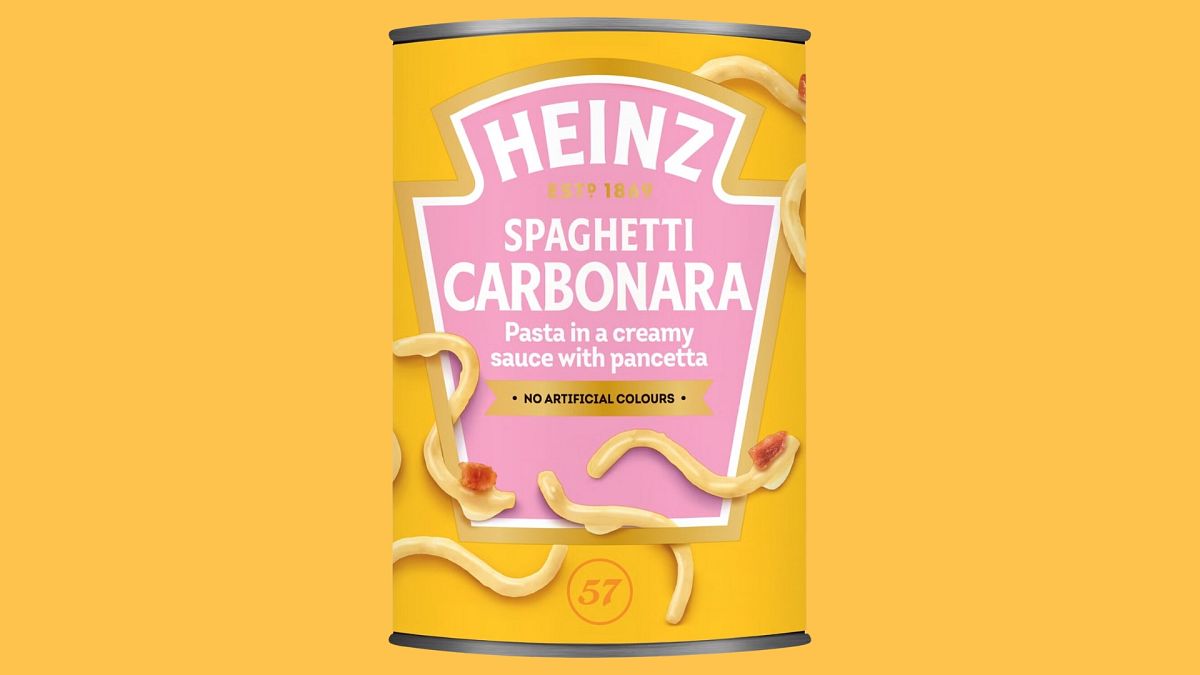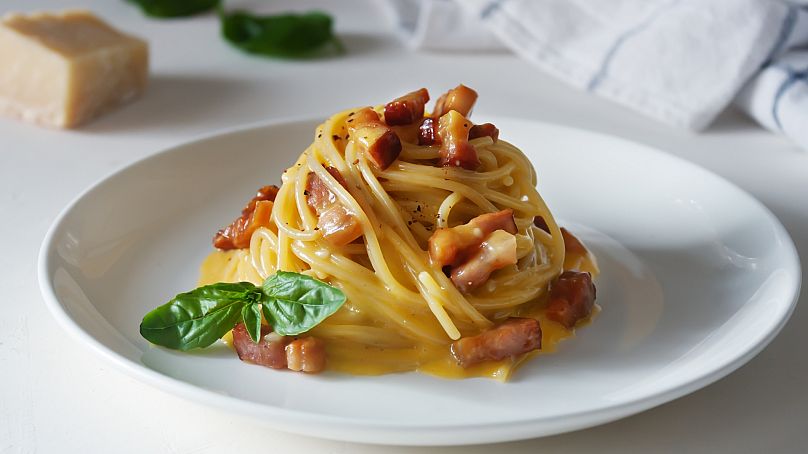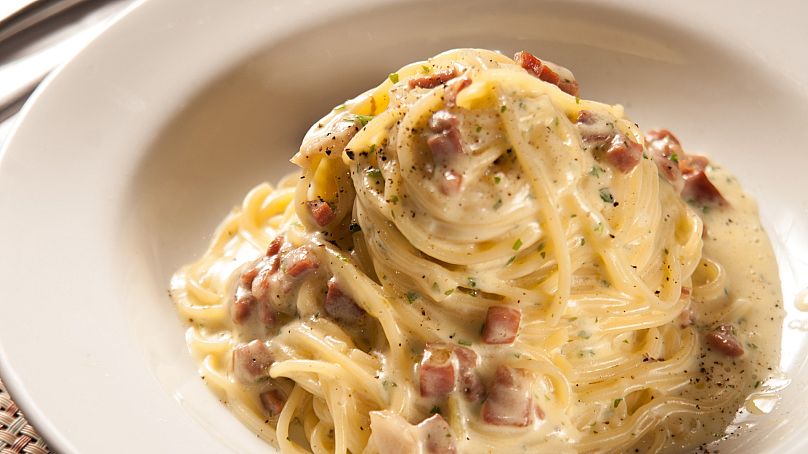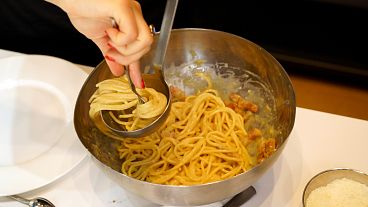Heinz has released its latest product — spaghetti carbonara in a can. Cue Italy going ballistic over the announcement.
Italians everywhere are embroiled in a new case of penne-clutching over the latest indignity that has been forced upon their beloved "bella cucina".
They’ve finally done it. They put carbonara in a can.
Heinz, the US manufacturer famous for its ketchup, spaghetti hoops, soups, baked beans and baked beans and sausages, has released the new product. The Heinz spaghetti carbonara in a can is set to hit UK supermarkets this month with a £2 (€2.37) price tag.
The company describes the “pasta in a creamy sauce with pancetta” as the “perfect solution for a quick and satisfying meal at home.” Unsurprisingly, the news that one of Italy’s most revered national dishes has been canned for easy consumption — mostly by Brits, probably — has set Italy ablaze.
Speaking to The Times, Alessandro Pipero, the head chef of Michelin-starred restaurant Pipero in Rome, said the new canned pasta is so abhorrent it amounts to “cat food”.
However, Italian shock over what some see as food crime is nothing new. A quick scroll through TikTok or other social media sites, and you can find reams of Italians reacting in abject horror whenever carbonara is debased.
The list of culinary carbonara cardinal sins is limitless to any true-blooded Italian, but you can narrow it down to three classics: using a pork product that isn’t guanciale — peppered cheek sourced from a very particular breed of pigs — adding garlic, and most harrowing, adding cream.
With its pancetta and cream sauce, Heinz has broken at least two of these rules. They’ve added an entirely new transgression by tinning the recipe.
Any Italian chef worth his or her salted pasta water will tell you that carbonara has just five ingredients: pasta (usually spaghetti, or alternatively, bucatini), guanciale, pecorino romano cheese, egg yolks and black pepper.
But some believe this is where Italians need to get real because, according to research, carbonara isn’t some sacred recipe carved into stone tablets centuries ago that can never be made in another way. As food history professor Alberto Grandi has pointed out, carbonara is in fact less than a century old.
The most convincing account for carbonara’s origin is that an Italian Army cook named Renato Gualandi amalgamated a few other recipes — namely pasta gricia, which can be described as eggless carbonara — in 1944 for a group of US soldiers, taking advantage of the Americans’ access to high-quality ingredients, and most importantly, powdered egg yolks.
Whose carbonara is it anyway?
The oldest extant recipe for carbonara isn’t even from Italy. It’s from a 1952 Chicago cookbook that features bacon instead of the hallowed guanciale.
Yet, Italians are quick to defend their famous dish by saying that cacio e uova, a Neapolitan pasta made with melted lard, beaten raw eggs and cheese, documented in Ippolito Cavalcanti's 1839 Neapolitan cookbook, is carbonara's true precursor.
Furthermore, domestic outlets like La Stampa have mentioned carbonara as early as 1950, often as a Roman dish popular with American soldiers.
However, is it such a problem if Heinz wants to put spaghetti carbonara in a can? Clearly, the new product is popular. According to the Heinz website, it's already sold out.
Besides, recipes over the years have added and subtracted ingredients as they saw fit. Some like Grandi believe that Italy’s approach to its culinary and cultural heritage, ossifying the ingredients and cooking style of a dish, should be criticised instead.
If the US wants to create an affordable and easy meal version of spaghetti carbonara that doesn't have to be true to its roots, who are the Italians to stop them? After all, the Americans were just as instrumental in its invention in the first place.

















